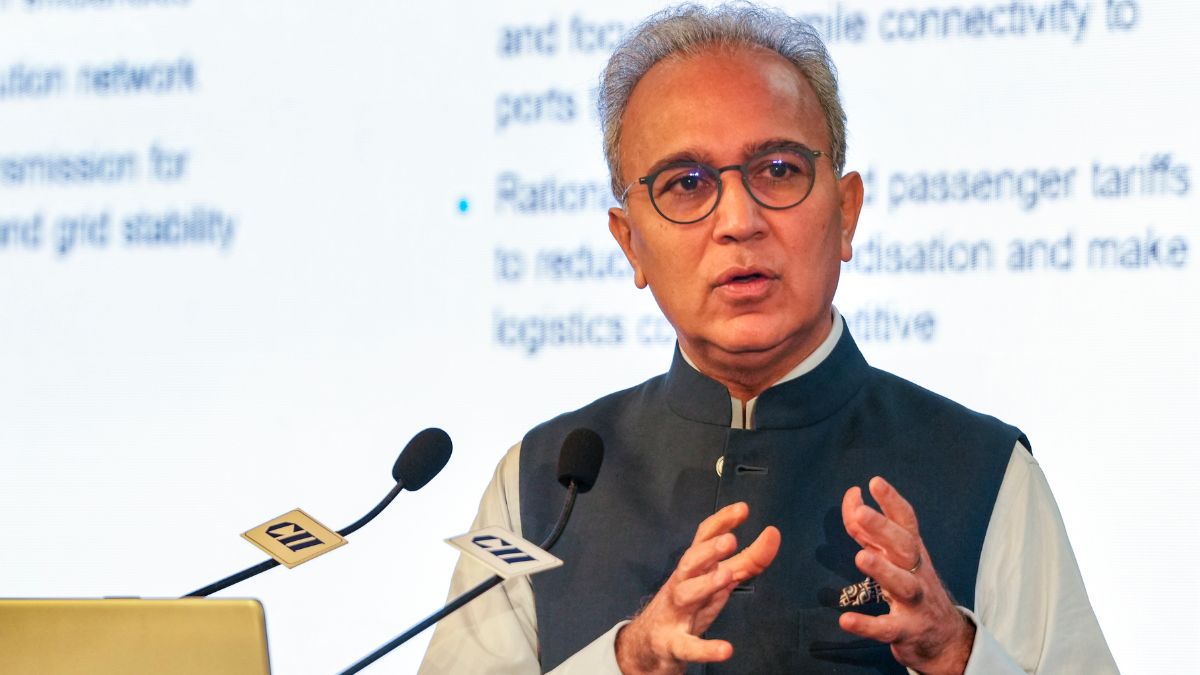EXCLUSIVE | 'State taxes should be brought under GST': Newly anointed CII President Rajiv Memani
 CII President Rajiv Memani | PTI
CII President Rajiv Memani | PTI
While most industry leaders look up to the gods atop Raisina Hill for their policy reform asks, it is perhaps his consultancy background—as the India chairperson of EY (previously Ernst & Young)—that made Rajiv Memani realise the ground-level reality of getting permissions and doing business in India and touch upon the importance of bringing ease of doing business and reforms to the state level.
In his vision document for his tenure as the president of India's biggest business body, the Confederation of Indian Industry (CII), Memani has not shied away from touching upon many 'holy cows', ranging from labour laws, compliances, as well as the need for states to get their act together.
Here is part two of THE WEEK's exclusive interaction with Memani:
States and the 'ease of doing business'
The Centre has a high-powered committee, which includes organisations like the CII, and we are working with state governments to share with them the best practices, how they compare with other states in terms of compliance, etc. A lot of deregulation in labour-intensive manufacturing is happening. The Centre is also creating incentives for the digitisation of land records, nudging the states on loans, etc.
We need to do more there, such as implementing a credit rating system for states and establishing an independent fiscal council that examines the financial health of every state.
I know we stopped it, but at some stage, a different version of the ease of doing business ranking for states will become very important.
Divergence amongst the states
There is a [divergence amongst the states]. Bureaucracy in states with a strong economic history understands how to attract investments and what they have to do. For some states which have not been on that journey yet, changing [itself] is a task.
State taxation under GST
The reason GST was created was that you don't have a cascading of taxes. So, once a tax has been implemented, you get credit for that tax in the entire value chain. The more you break the value chain, the cost structures go up.
So, as India signs FTAs, as the economy opens up more, and you want to do more and more manufacturing, the competitiveness of the industry becomes very important. And for ensuring that India is competitive, these breaks are not good because they just keep on adding a cascading effect on tax, on costs and everything. They are very inefficient.
So, therefore, from an industry standpoint, the clear ask is, whatever you have to levy, please keep it at, you know, in a way which is a normal cascade so that we can get credit for that.
Political challenges
If you step back (in time), this was the very reason why people felt GST would never happen in India. It took 10-15 years for it to be implemented in 2017.
So, it requires leadership and building of trust when you do that. And you may not want to do it all in one go.
Secondly, you could perhaps give states the flexibility to charge, within a given range.
There are situations which are not perfect. But every year, if you can move a few steps ahead, eventually the trust will get built and you will achieve the final goal.
But right now, in [the last] eight years, not much change has happened on this. I think it's time that we move forward on some of them.
This is part two of the interaction. Read part one on theweek.in
Business